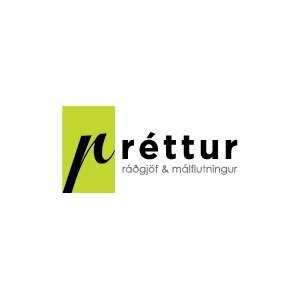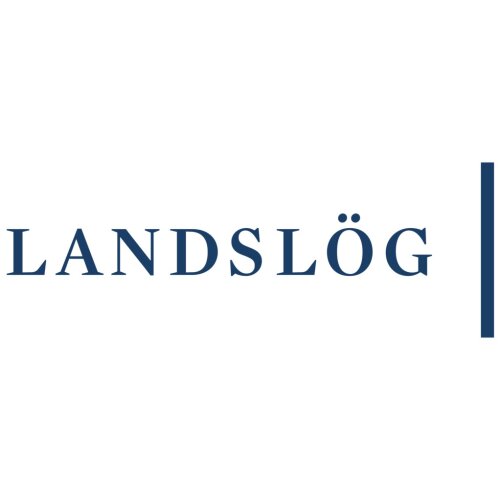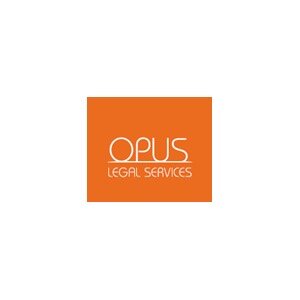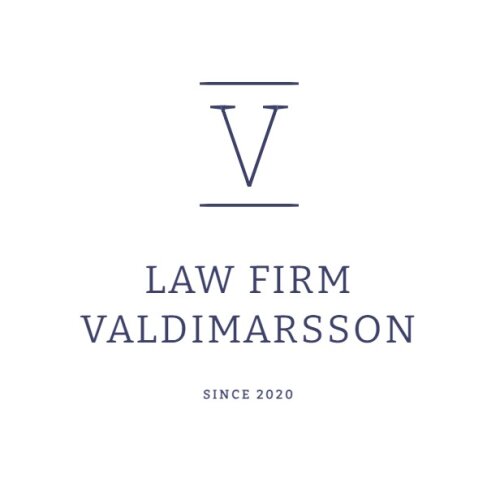Best Water Law Lawyers in Iceland
Share your needs with us, get contacted by law firms.
Free. Takes 2 min.
Or refine your search by selecting a city:
List of the best lawyers in Iceland
About Water Law in Iceland
Water Law in Iceland refers to the set of rules and regulations that govern the use, management, and protection of water resources across the country. These laws regulate ownership, access rights, and usage of both surface and groundwater, including rivers, lakes, streams, geothermal water, and coastal resources. Water Law ensures the sustainable management of Iceland’s abundant but delicate aquatic resources, balancing public and private interests, environmental protection, and economic development.
Why You May Need a Lawyer
Legal issues involving water in Iceland can be complex, due to the intersection of environmental, property, and administrative law, as well as the country’s unique geothermal and hydropower contexts. You may need a lawyer specializing in Water Law if you find yourself in situations such as:
- Seeking permits or licenses for commercial water use, including hydropower, geothermal energy, or fisheries
- Facing disputes over water rights or access between neighbors, companies, or governmental bodies
- Addressing water pollution or environmental protection concerns that may impact your property or business
- Participating in land development projects that could affect waterways or require environmental assessments
- Responding to changes in regulations relating to water conservation or resource management
- Appealing administrative decisions by local or national authorities regarding water usage
A lawyer can help clarify your rights and obligations, represent your interests, and guide you through Iceland's regulatory landscape.
Local Laws Overview
Key aspects of Water Law in Iceland include:
- The Water Act (Vatnalög) governs surface and groundwater use, resource allocation, and the granting of water rights. This law defines how water is managed and by whom.
- The Icelandic Nature Conservation Act provides protection for certain water bodies, limiting activities that might harm natural resources or biodiversity.
- Environmental Impact Assessments (EIA) are required for projects that could significantly affect watercourses, wetlands, or the coastal environment.
- Permit Systems exist for industrial water use, hydroelectric plants, geothermal energy extraction, and other commercial activities. Permits are usually granted by the National Energy Authority or municipal authorities.
- Public versus Private Water Rights: While water resources are considered public property, specific usage might be allocated to private individuals or companies under strict conditions.
- International agreements and EU directives related to water quality and ecosystems (such as the Water Framework Directive) influence Icelandic water law, even though Iceland is not an EU member, due to its EEA membership.
Frequently Asked Questions
What is considered public versus private water in Iceland?
Most rivers, streams, and groundwater in Iceland are classified as public property. However, usage rights can be allocated to individuals or entities via permits. Generally, access for recreation is allowed, but extraction or significant use requires legal permission.
Do I need a permit to use water from a river or lake on my land?
Yes. Significant use of water - for commercial, agricultural, or industrial purposes - typically requires a permit from the relevant local or national authority, even if the water source is on your property.
Are there restrictions on building near water sources?
Yes. Building near rivers, lakes, and coastlines is subject to strict regulations to protect water quality, prevent erosion, and maintain public access. Permits, and sometimes environmental assessments, may be required.
Can I drill a well on my property?
You need to obtain a permit to drill for groundwater, as well as comply with technical requirements and possible environmental assessments depending on the intended use and location.
What happens if someone pollutes a river or lake?
Pollution of water bodies is prohibited under Icelandic law. Offenders can face administrative penalties, fines, and liability for cleanup costs. Legal action can be taken by authorities or affected parties.
Who manages water rights in Iceland?
The National Energy Authority and municipal governments manage the granting and oversight of water rights, with guidance from national legislation and environmental agencies.
Can a foreigner acquire water rights in Iceland?
Foreign individuals or companies face restrictions but may acquire rights through licensing and compliance with Icelandic regulations, especially for commercial activities.
Are there special laws for geothermal water and hot springs?
Yes. Geothermal resources are regulated with specific provisions related to their sustainable use and environmental impact. Special permits are required for drilling and exploitation.
How are water disputes resolved?
Water-related disputes in Iceland are usually handled by administrative authorities, but unresolved matters can be taken to the courts. Legal mediation is also possible.
How does the law protect water ecosystems in Iceland?
Environmental protection laws require careful assessment of any activity impacting water ecosystems. There are restrictions on pollution, habitat destruction, and over-exploitation, ensuring long-term sustainability.
Additional Resources
If you need more information or assistance with water-related legal matters in Iceland, consider these resources:
- National Energy Authority (Orkustofnun): Responsible for water rights permits and energy resources.
- Ministry for the Environment, Energy and Climate: Oversees national policy and environmental regulations regarding water.
- Environmental Agency of Iceland (Umhverfisstofnun): Handles water protection, pollution control, and environmental impact assessments.
- Municipal Governments: Local offices can provide guidance on local restrictions and permitting processes.
- Icelandic Bar Association (Lögmannafélag Íslands): For finding licensed lawyers specializing in environmental and water law.
- University of Iceland - Faculty of Law: Offers research materials and sometimes free seminars or advice.
Next Steps
If you believe you need legal assistance with a water law matter in Iceland, here are some steps to consider:
- Identify your specific legal issue - is it a permit, a dispute, or environmental compliance?
- Gather relevant documentation - such as land deeds, permits, correspondence, or project plans.
- Research local requirements regarding your water-related activity, as rules may vary by municipality and depending on water source.
- Consult with a qualified lawyer who specializes in water, environmental, or natural resource law. Early legal input can help resolve issues and prevent costly mistakes.
- Contact governmental agencies responsible for water management for guidance or to start applications.
- If needed, prepare for mediation or administrative proceedings by working with your lawyer, especially if a dispute cannot be resolved informally.
Legal matters involving water in Iceland can affect both the environment and personal interests. Taking a proactive approach and seeking specialized legal guidance is the best way to protect your rights and ensure compliance with Icelandic law.
Lawzana helps you find the best lawyers and law firms in Iceland through a curated and pre-screened list of qualified legal professionals. Our platform offers rankings and detailed profiles of attorneys and law firms, allowing you to compare based on practice areas, including Water Law, experience, and client feedback.
Each profile includes a description of the firm's areas of practice, client reviews, team members and partners, year of establishment, spoken languages, office locations, contact information, social media presence, and any published articles or resources. Most firms on our platform speak English and are experienced in both local and international legal matters.
Get a quote from top-rated law firms in Iceland — quickly, securely, and without unnecessary hassle.
Disclaimer:
The information provided on this page is for general informational purposes only and does not constitute legal advice. While we strive to ensure the accuracy and relevance of the content, legal information may change over time, and interpretations of the law can vary. You should always consult with a qualified legal professional for advice specific to your situation.
We disclaim all liability for actions taken or not taken based on the content of this page. If you believe any information is incorrect or outdated, please contact us, and we will review and update it where appropriate.
Browse water law law firms by city in Iceland
Refine your search by selecting a city.
















